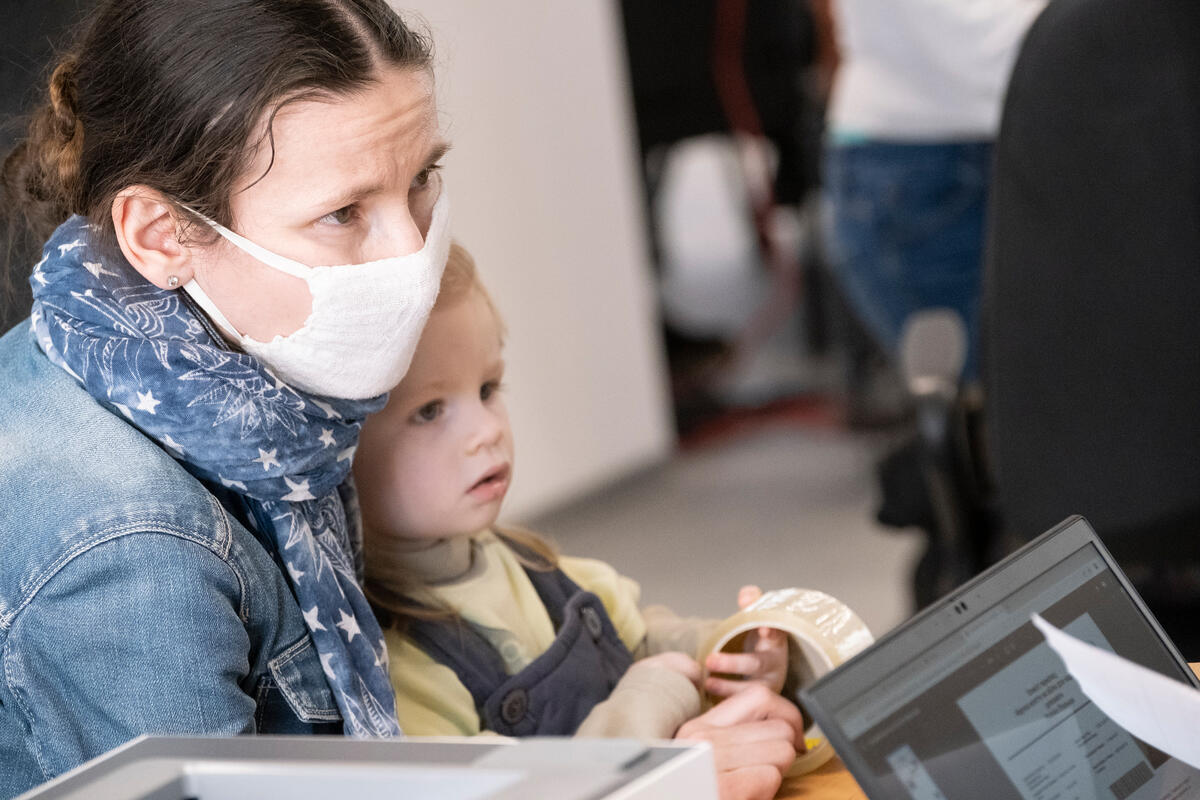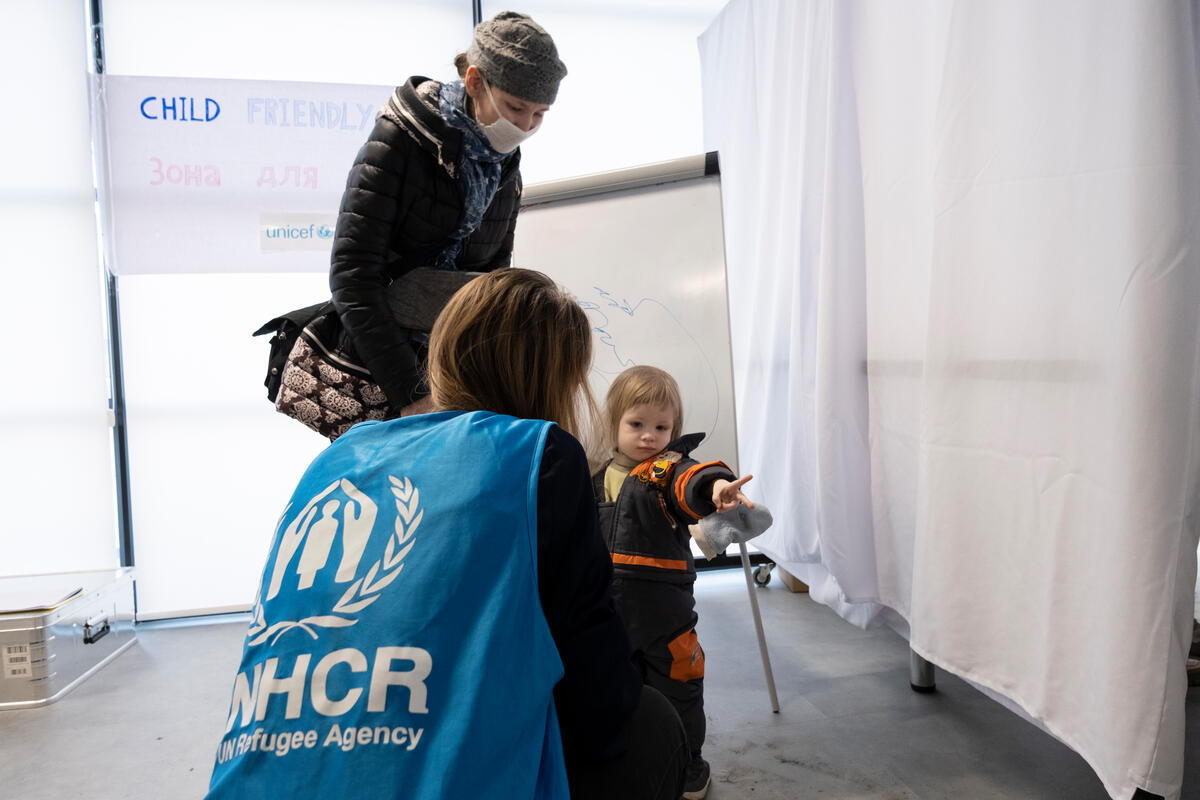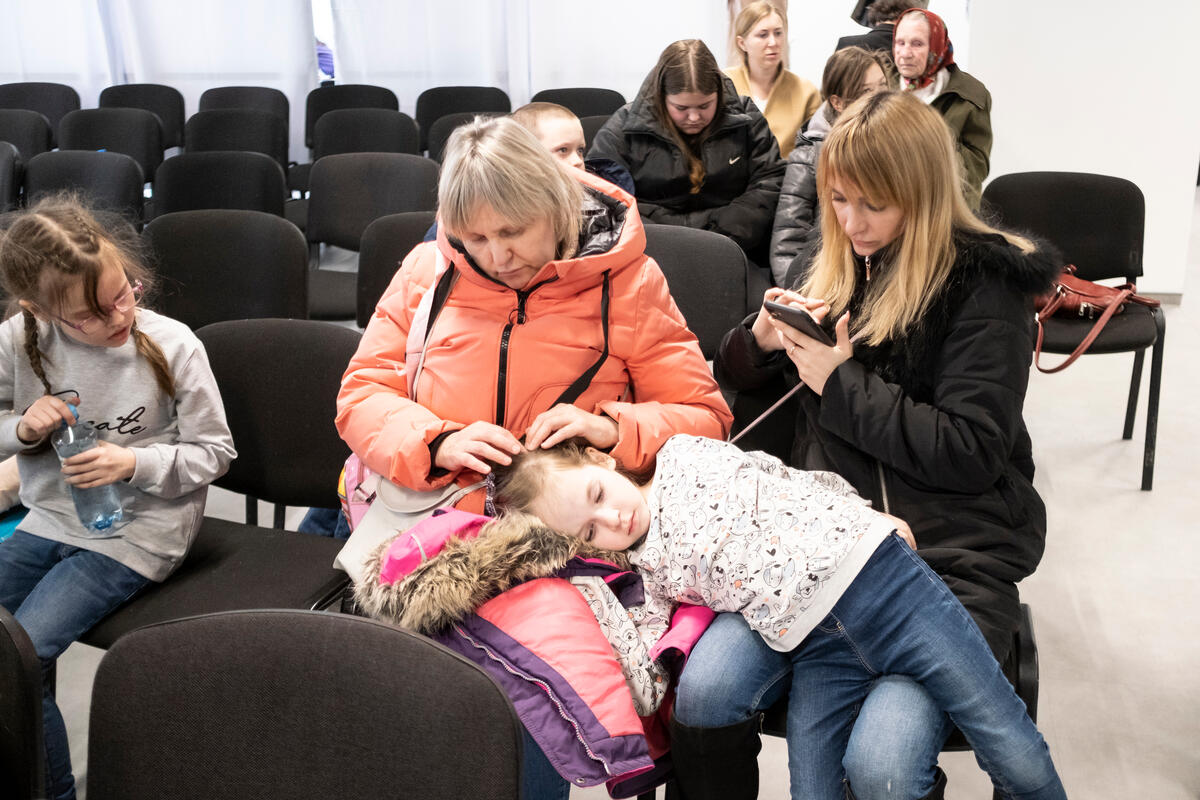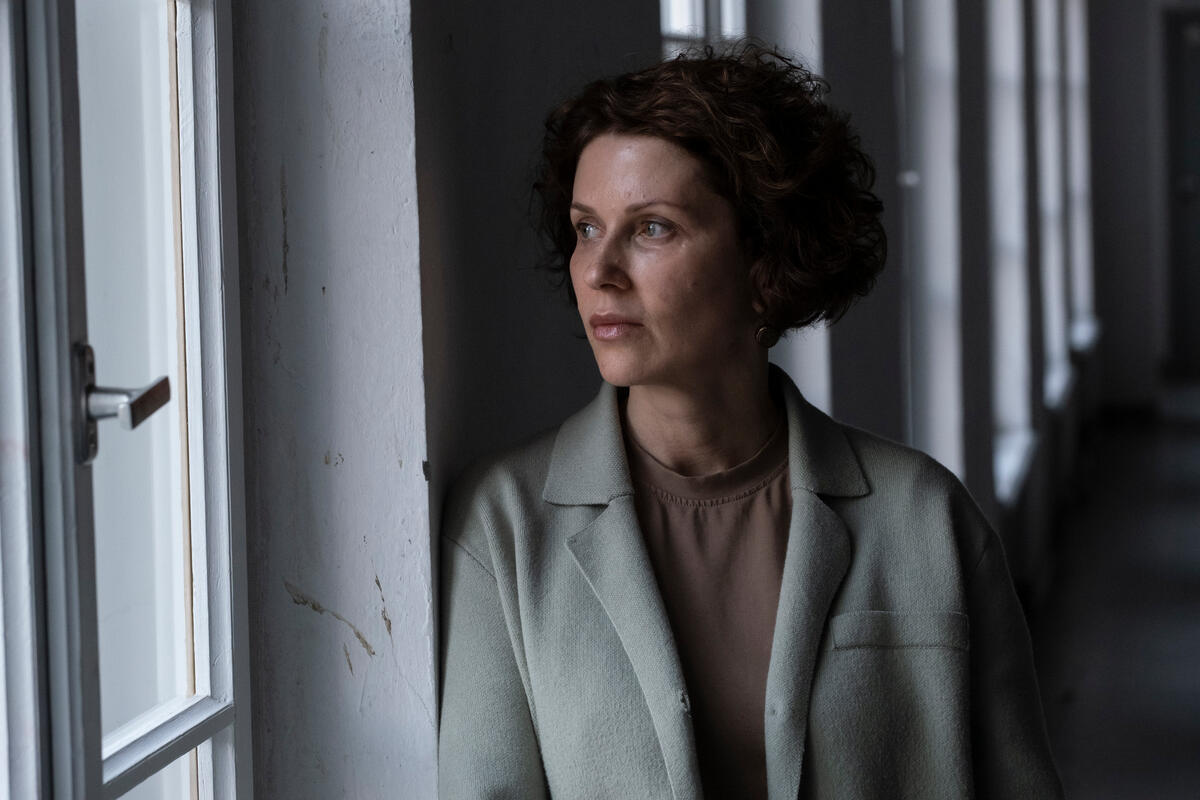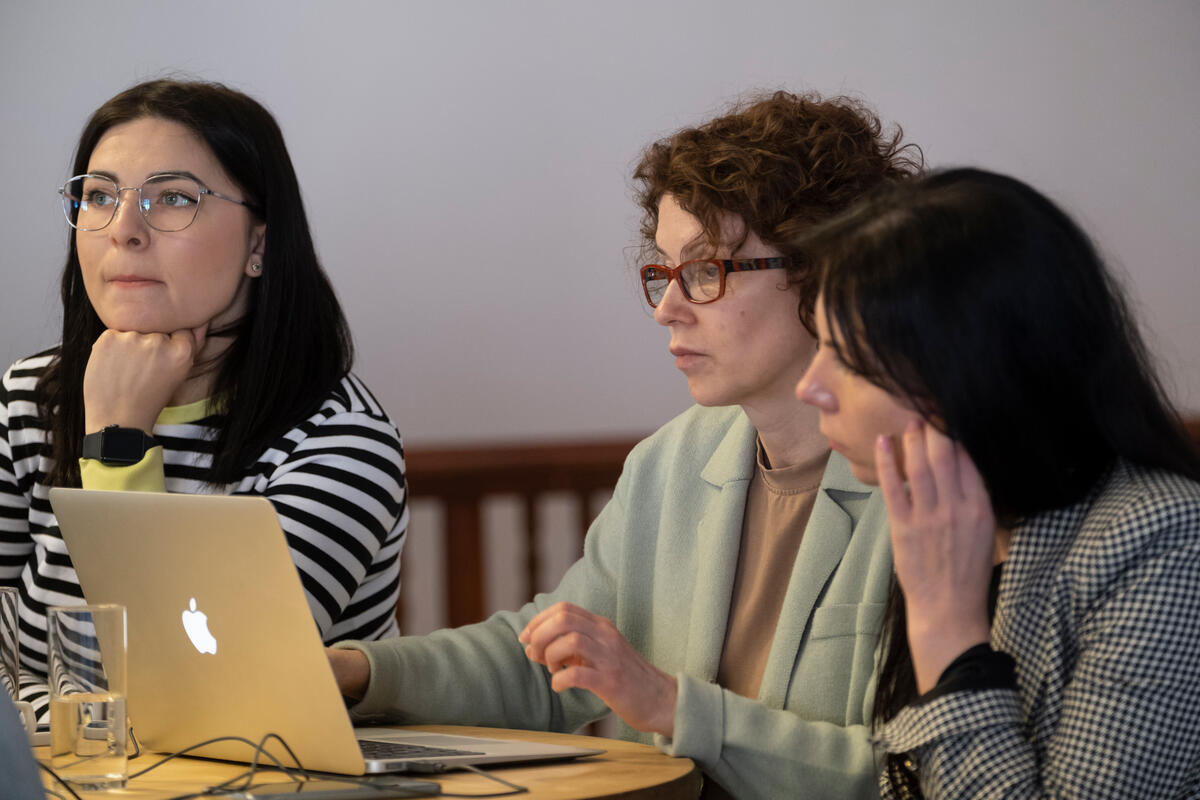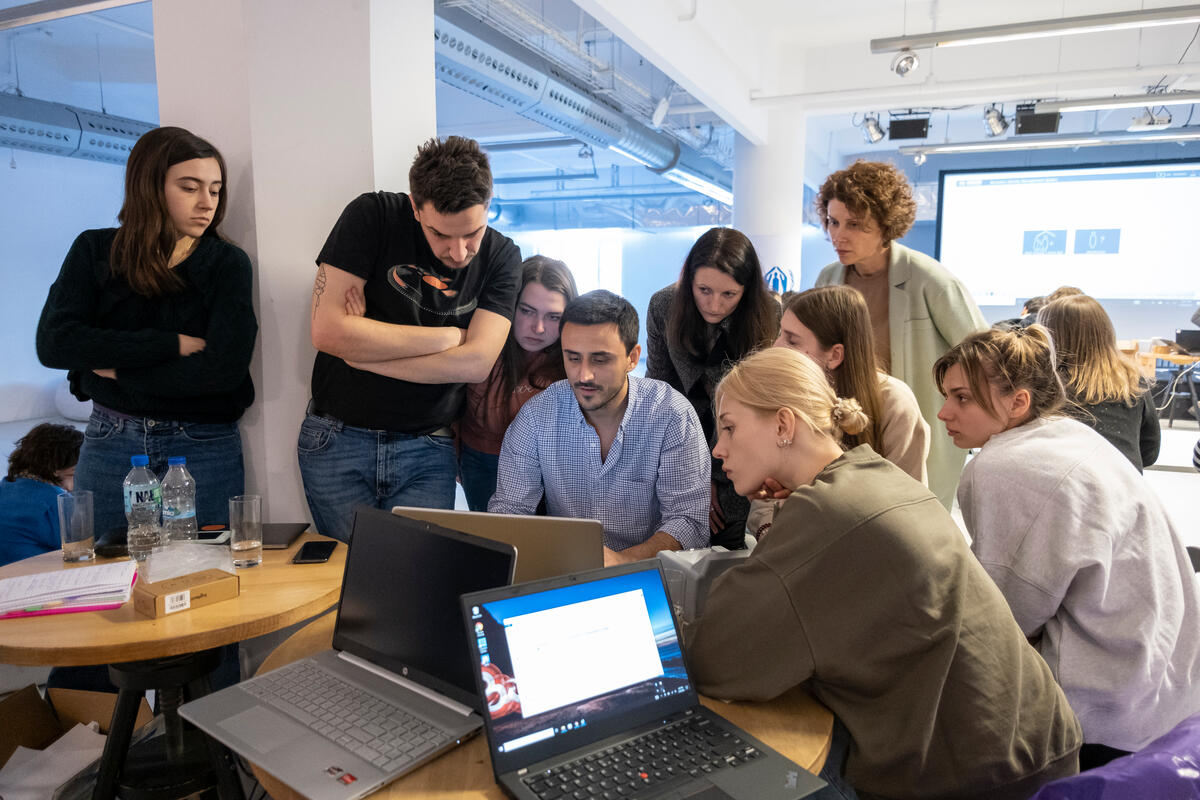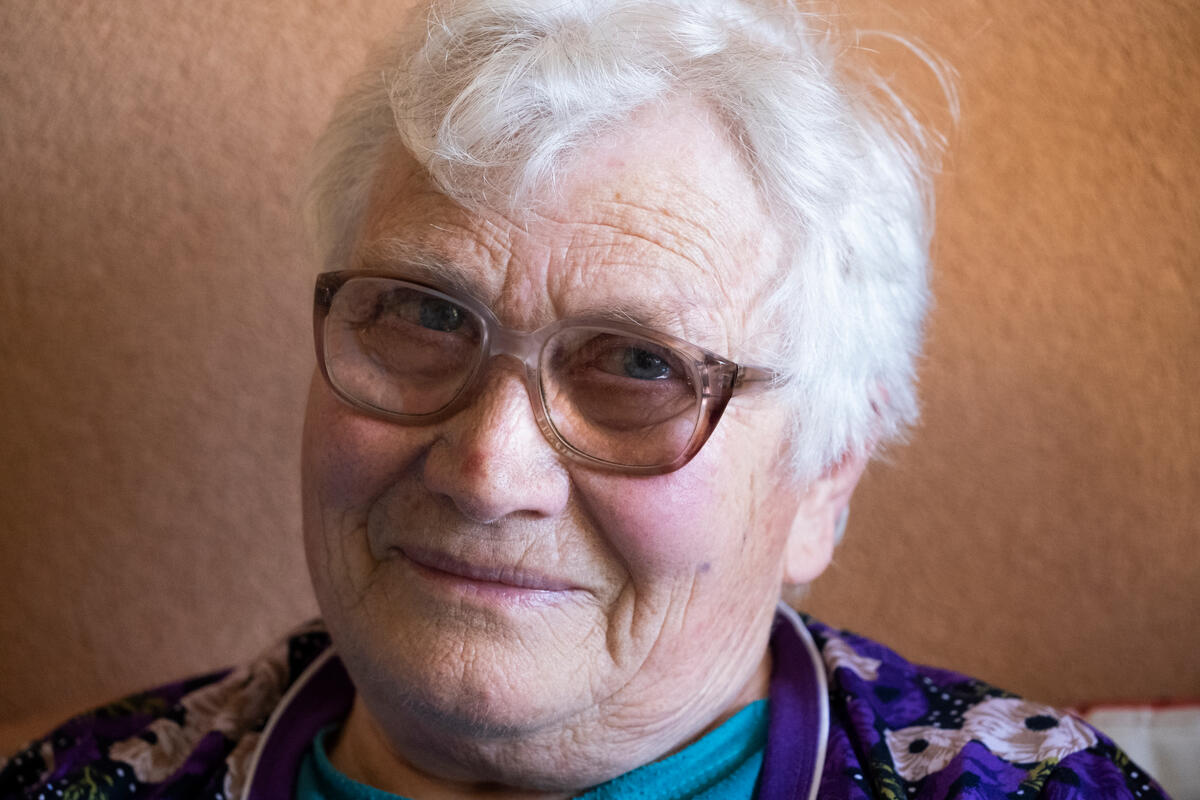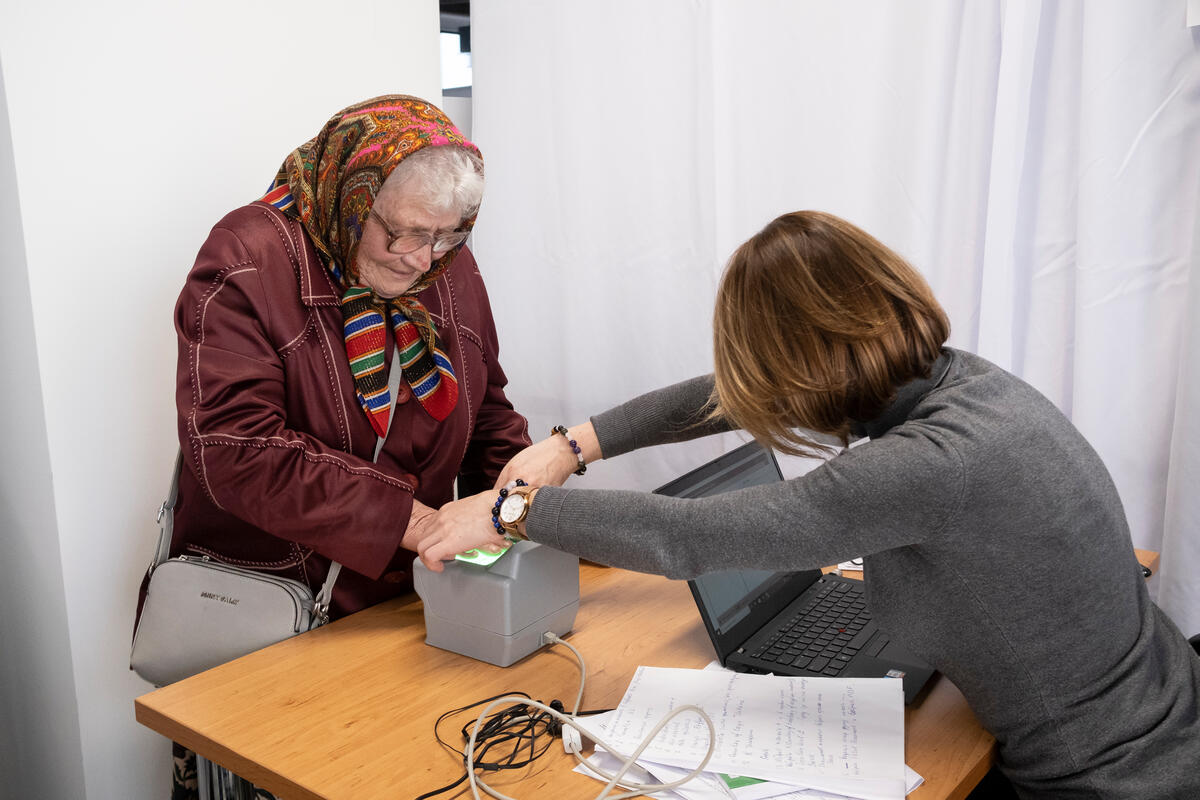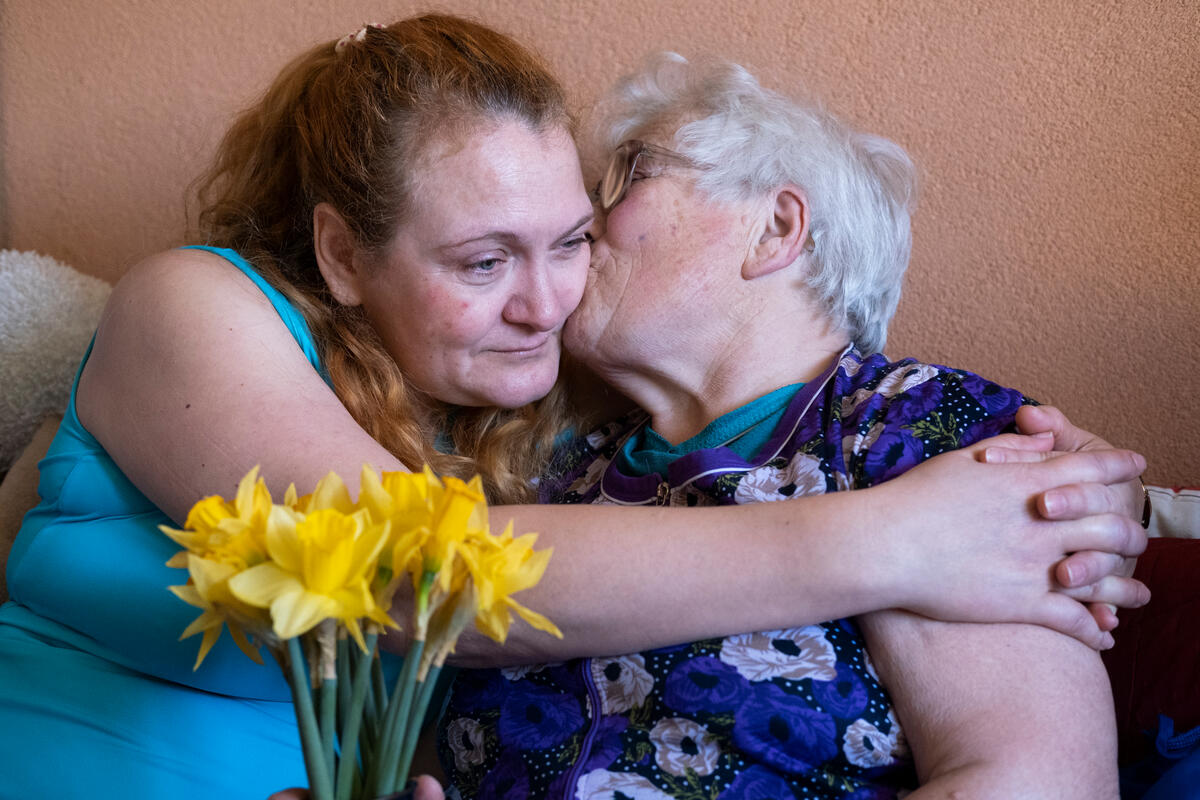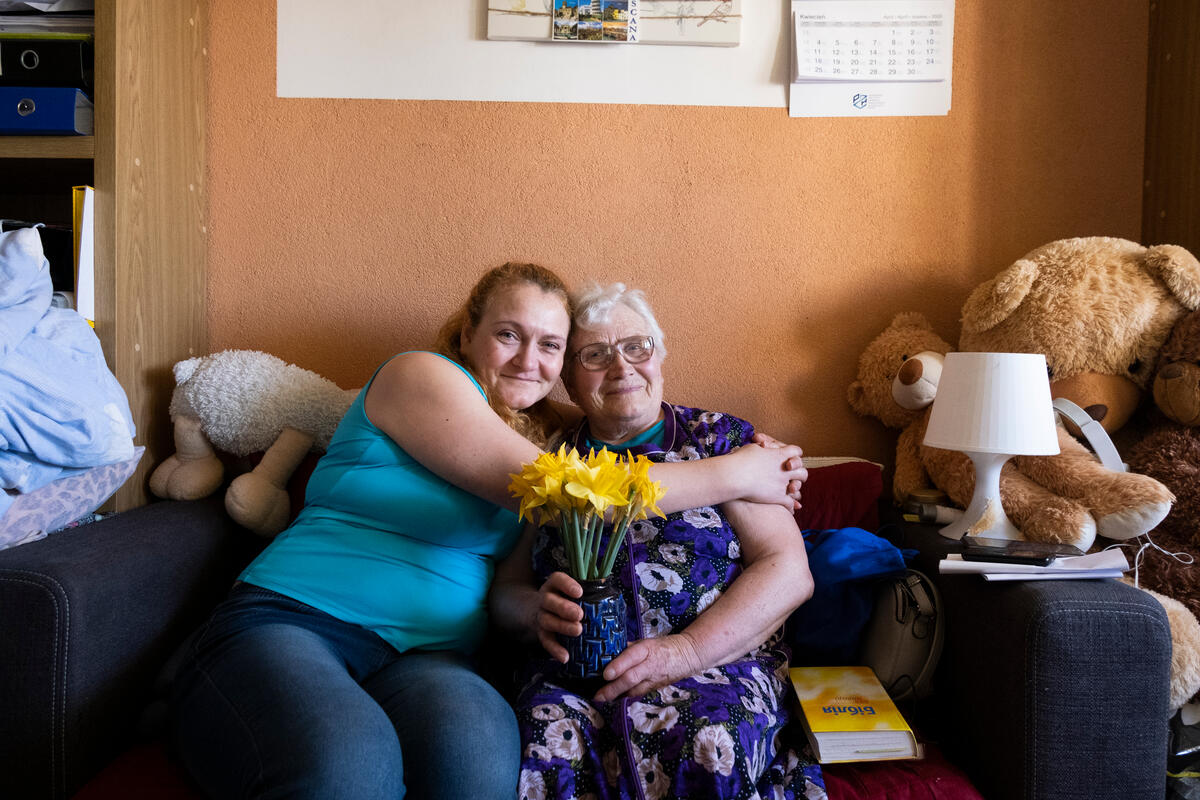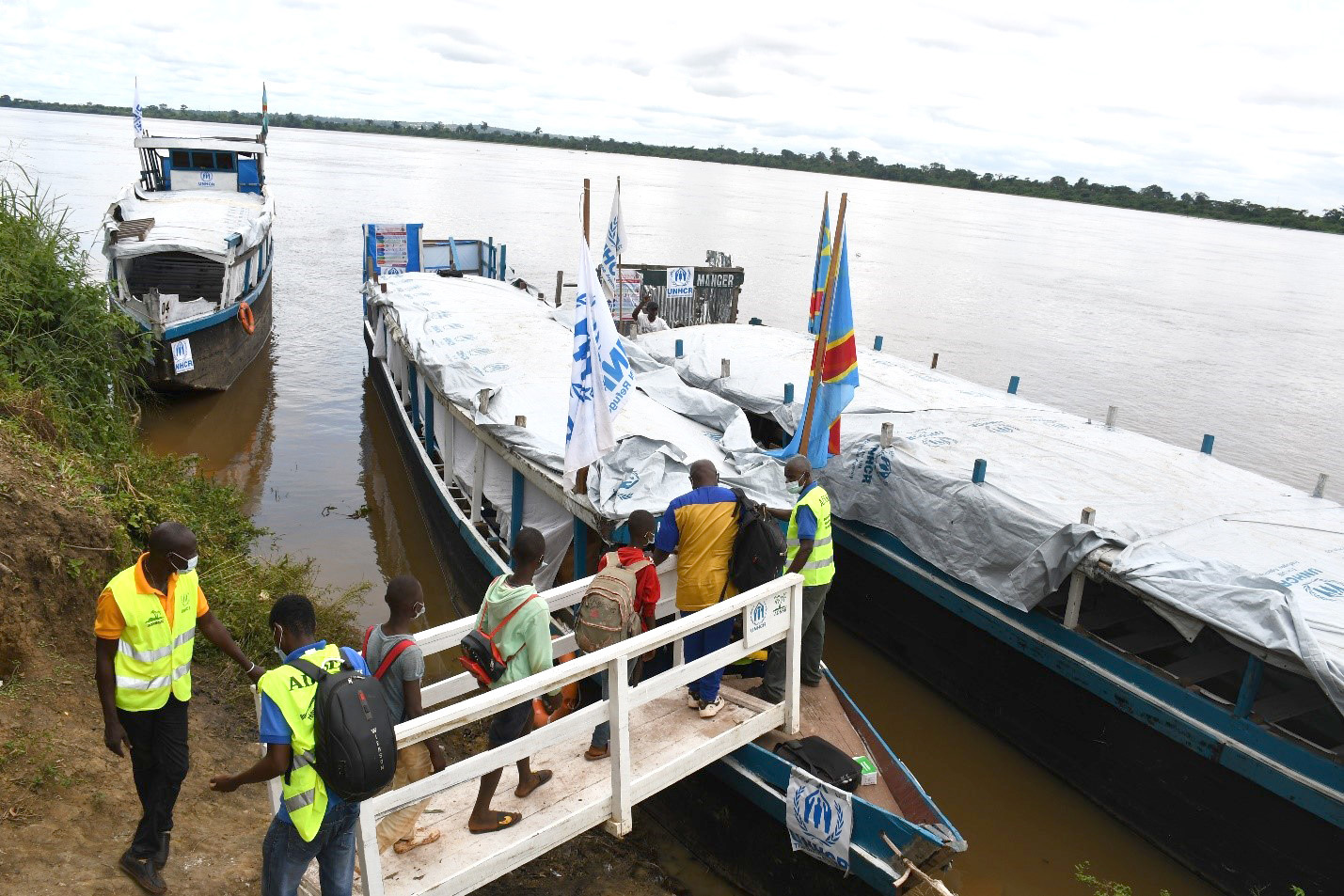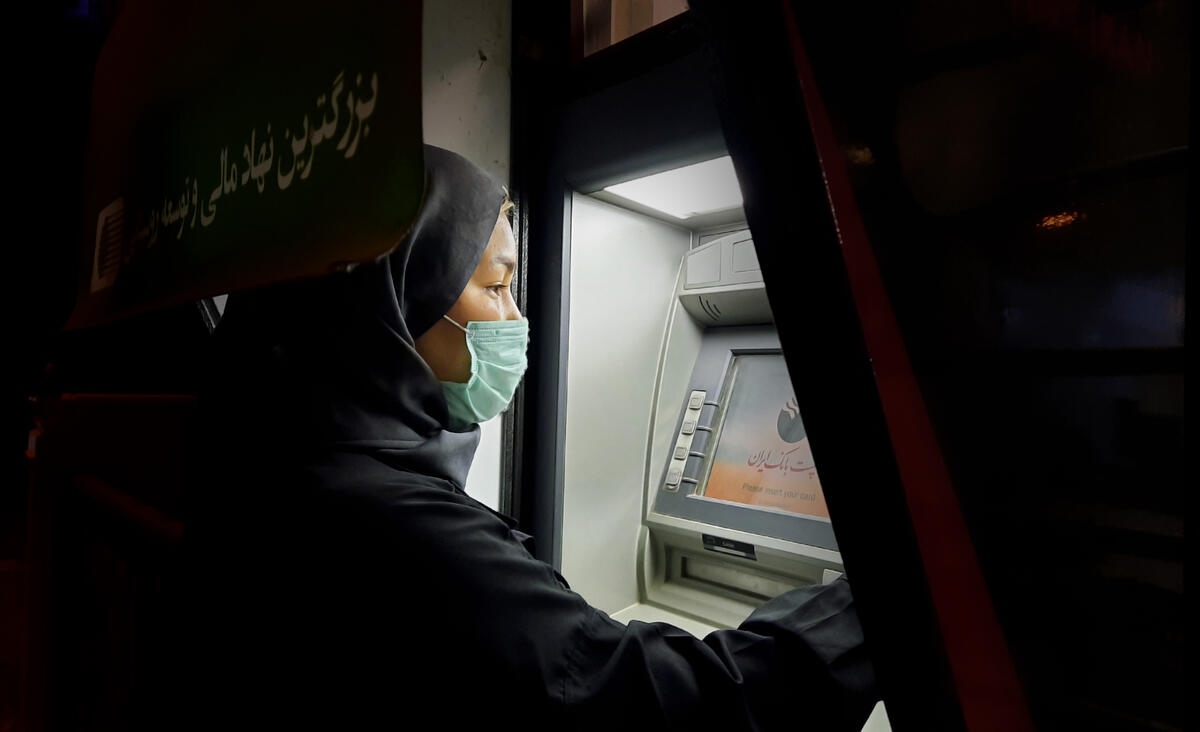Cash offers a lifeline to refugees from Ukraine arriving in Poland
Eleven days after the war in Ukraine started, a bomb fell on the building next to the one where Rozalia lived with her husband and 2-year-old son, Andre, in the northern city of Chernihiv.
Rozalia knew she had only a brief window of opportunity before more bombs would fall. She grabbed the bag she had packed in readiness 11 days earlier and left the city with her son. A priest drove them to Kyiv and from there she crammed into a train that took them to the Polish border. The journey took three days, but Rozalia bats away any suggestion it was an ordeal.
“It wasn’t about the difficulties of the journey,” she says. “It was about finding a safe place for my son.”
We meet Rozalia standing in line outside a large office building in Warsaw that has been hastily converted by UNHCR, the UN Refugee Agency, into an enrolment centre for cash assistance. Andre is clamped against his mother’s body and shows no sign of wanting to explore his new surroundings.
"Our fridge is empty."
Rozalia, who worked in local theatre as an actress before the war, has not heard from her husband in Chernihiv for three days. She and Andre have a roof over their heads in Warsaw thanks to a Polish journalist who offered them his spare room. What she lacks is cash to buy what she and her son need until they can register for the identification documents that will give them access to Poland’s social security system.
“Our fridge is empty, so we need to buy food,” she says. “Some people have tried to give us food, but I feel ashamed. I want to buy it myself.”
Poland has provided refuge to more than 2.3 million people fleeing Ukraine in just over a month, and more are arriving every day. While some have moved on to other countries in Europe and elsewhere, the majority have remained in Poland where they can be closer to home and the relatives they had to leave behind.
The European Union’s decision to offer temporary protection status to people fleeing the war in Ukraine means refugees can access social services and the labour market without having to go through lengthy asylum procedures. But the process of registering so many refugees will take time.
UNHCR’s cash assistance programme aims to help refugees like Rozalia cover their most urgent and immediate needs until they can find work or receive social support. It has the added benefit of feeding back into the local economy when refugees buy the things they need, or even pay rent.
The programme in Poland has reached more than 9,500 refugees since the Warsaw centre opened on 21 March. It will roll out in other cities across Poland with the aim of reaching 450,000 refugees with cash assistance. A similar programme is being rolled out in Moldova, Romania, Slovakia and in parts of Ukraine, where more than 6,5 million people have been internally displaced and many urgently need help to cover their basic needs.
In Poland, eligible refugees who enrol for the programme will receive 700 Polish zloty (US$165) per month for at least three months, with an additional 610 Polish zloty for each household member, to a maximum amount per household of 2,500 zloty (US$605) per month.
“Cash puts the decision-making about what is most needed into the hands of the people being assisted,” explains Andrew Hopkins, chief of UNHCR’s digital identity and registration section, who is in Poland to help set up cash enrolment centres like the one in Warsaw.
The enrolment centres also provide an entry point for UNHCR and its partners to identify other needs that particularly vulnerable refugee families might have, and to connect them with the appropriate civil society organization or government department.
“[During the enrolment], we only have a few minutes with each refugee family and in that short exchange, we make sure we have mechanisms in place to be able to support them not just with cash, but with a full protection response,” says Hopkins.
“Blue Dot” help desks, jointly run by UNHCR and UNICEF, will be set up at every cash centre to provide counselling to refugees, and to refer them to specialized services including for unaccompanied children, people with disabilities, refugees from the LGBTI+ community or women experiencing gender-based violence.
Some of the staff recruited and trained by UNHCR to work at the centres are themselves Ukrainian refugees.
"This programme is about helping other refugees."
Ilona fled Kyiv with her two children on 2 March. “We didn’t believe this could happen until we woke up one morning and heard the bombing. Before that, we went to bed believing the diplomatic process would work.”
She left Ukraine for the sake of her children, but also because she felt powerless to help others there.
“I had to make a decision to go somewhere I could do more,” she says, during a break in a training for the cash centre staff before its launch. “This programme is about helping other refugees. Also, I work and I’m busy and it takes me away from being on social media all day.”
During a pilot of the programme, Ilona says she met “people in desperate need who’d crossed the border with nothing”.
Eighty-year-old Liubov, known to her family as Luba, brought only a small bag containing some documents, including the title to her house in a village outside Kyiv.
“It was all she could carry,” explains her daughter, Larysa, a physiotherapist who has lived in Poland for 11 years and accompanied her mother to the cash enrolment centre. “At the beginning, she refused to leave her house and her village where she had lived all her life. But with the stress of the situation, she was hardly walking, and I insisted to bring her here.”
Larysa found some friends with a minibus who brought her to the Polish border where another friend had driven Larysa to meet her. “We’re praying for the war to end so she can return home. She tells me that an old tree can’t be replanted. She has her roots there.”
In the meantime, Luba has moved into Larysa’s tiny studio apartment in Warsaw. They will use the cash she receives from the programme to pay for some crutches and other medical needs.
The cash centre is full of mothers with tired children. When one of them starts crying, Luba is reminded of the cries of a child in the church where she rested for a few hours during her long journey to the border.
“I want peace and no more war,” she says, wiping away her own tears. “I don’t want the children crying.”



